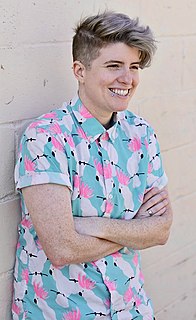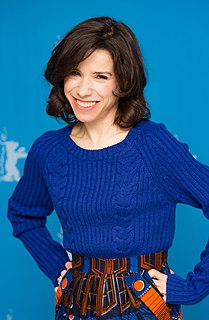A Quote by Jocelyn Moorhouse
When I was a teenager, I used to love the Bronte books, 'Wuthering Heights' and 'Jane Eyre.' In those books, the women do usually manage to heal the men, but in life, I've found it's often the woman gets wounded. Instead of healing a man, she gets affected by his cruelty.
Related Quotes
I started reading seriously at seven or eight, books about myths and legends, the Narnia series. By the time I was 11, I had read all the children's books in my local library, so I moved on to 'Jane Eyre.' What I loved about Jane Eyre was that she didn't rely on her looks but her character. She had a spirit nobody could break.
What works for men does not always work for women, because success and likability are positively correlated for men and negatively correlated for women. That's what the research shows. As a man gets more successful, everyone is rooting for him. As a woman gets more successful, both men and women like her less.
She comes to me when she wants to be fed. And after I feed her -- guess what -- she's off to wherever she wants to be in the house, until the next time she gets hungry. She's smart enough to know she can't feed herself. She's actually a very smart cat. She gets loved. She gets adoration. She gets petted. She gets fed. And she doesn't have to do anything for it, which is why I say this cat's taught me more about women, than anything my whole life.





































